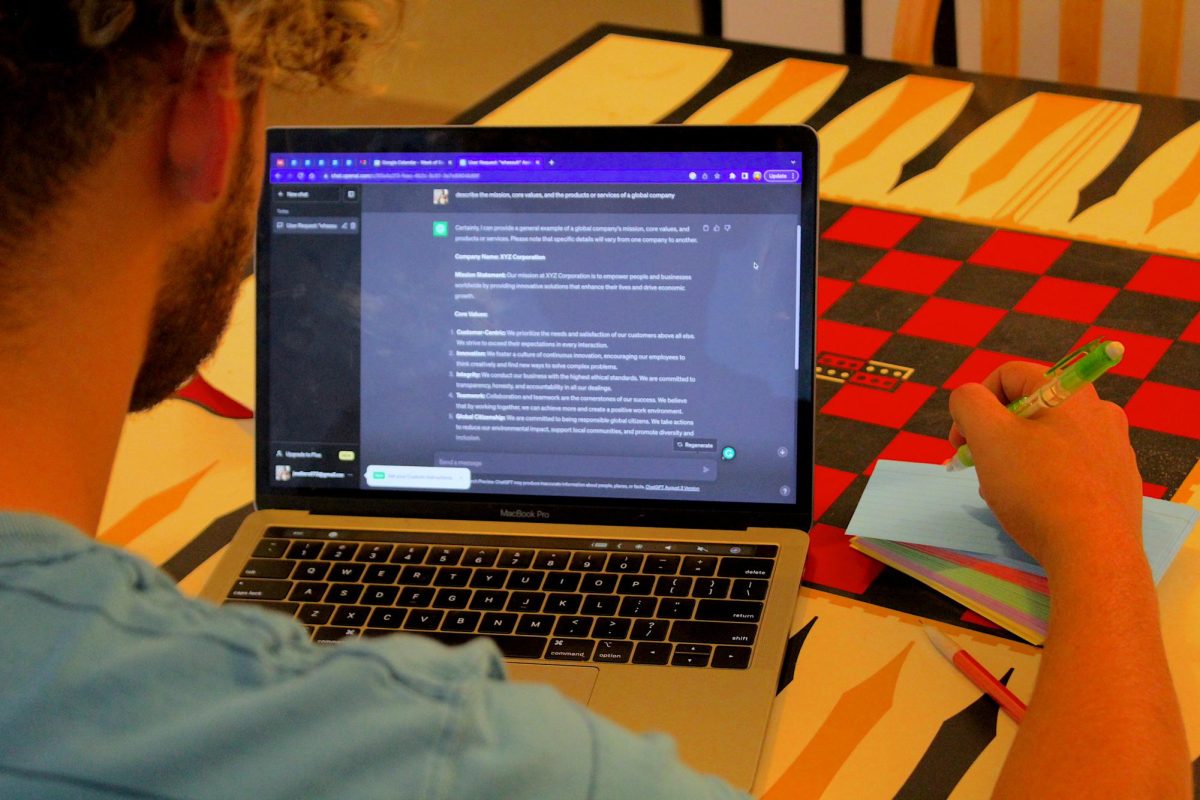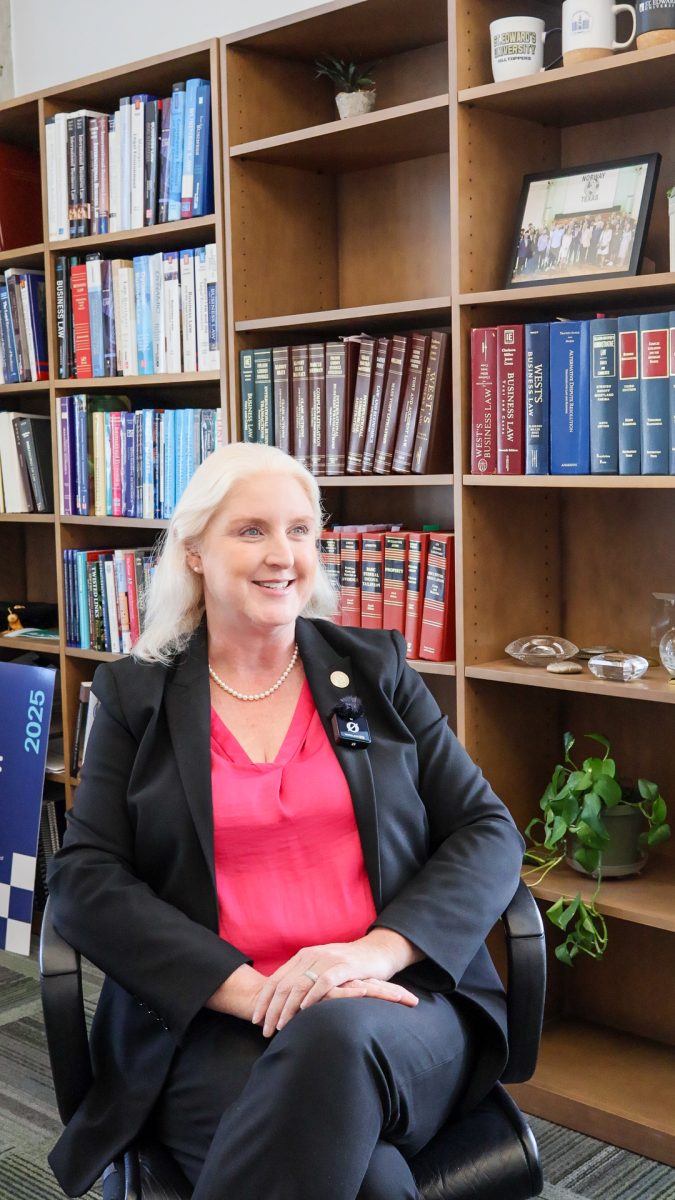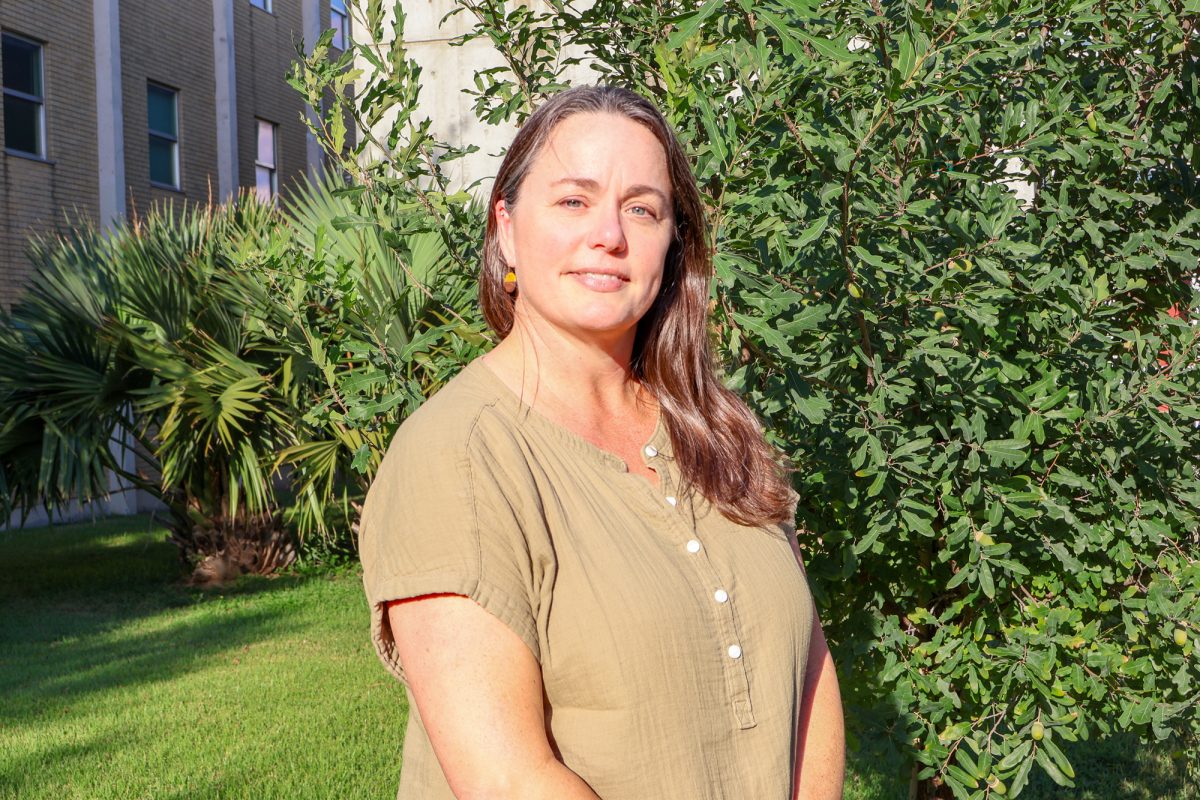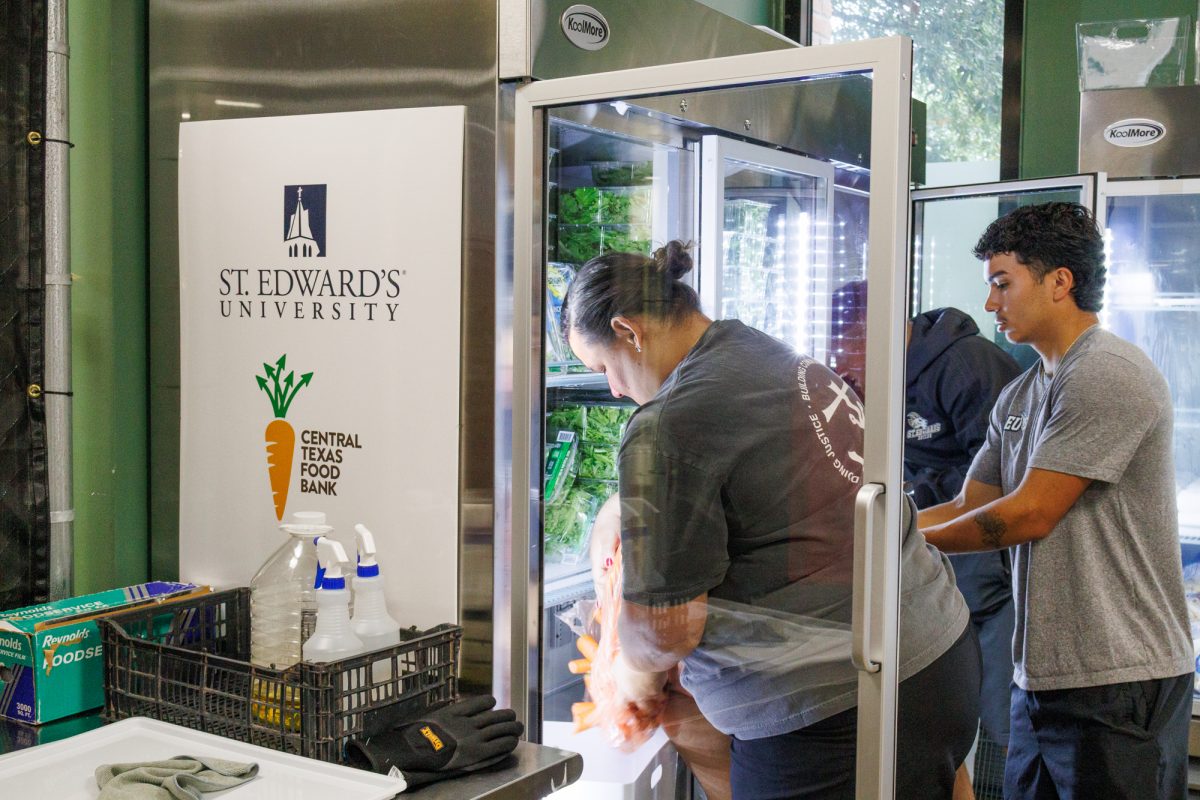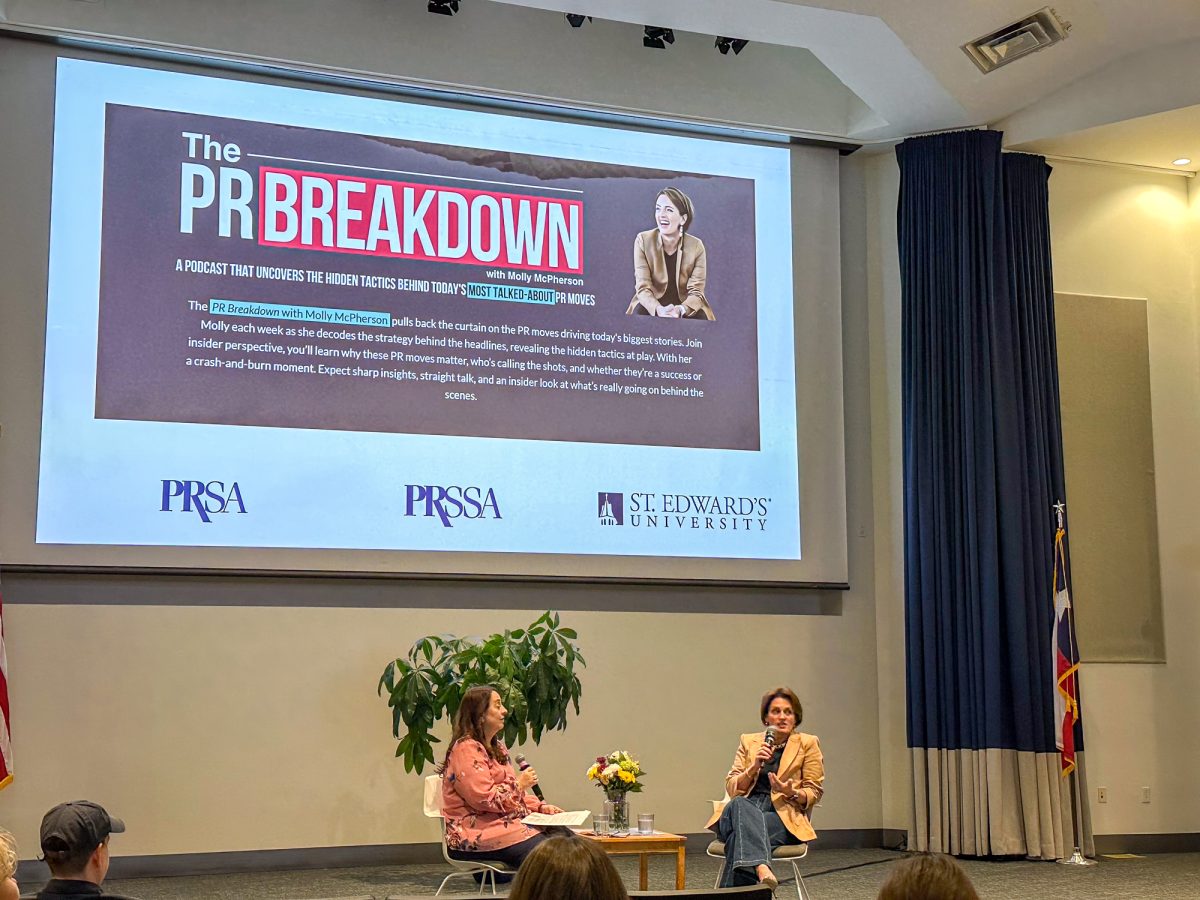Generative AI continues to change the world as well as policies conducted on campus at St. Edward’s University. This semester, students might have noticed the change in the routine syllabus days in the first week of class. A new portion was introduced: a policy on AI use in classrooms.
However, St. Edward’s doesn’t have a one size fits all policy; it depends on the classroom and is up to the professor’s discretion.
Writing and Rhetoric professor Drew Loewe shared how the university approached this new policy.
“There couldn’t be any, or there shouldn’t be any sort of one-size fits all policy,” Loewe said. “What the university has done–I’ve helped with that as have other people–is sort of gather resources and make people aware of possibilities and provide places where people can get information to craft a policy of their own that makes sense for their own context.”
The policy can’t be a simple umbrella statement due to the different areas of study at St. Edward’s.
“So faculty are getting informed about it, they’re seeing examples, they’re considering possibilities of modifying their assignments, but it’s going to look a lot different in a computer science course as it would in a poetry course,” Loewe said.
Professor Loewe allows students to use AI in his classroom for assignments, however the student must disclose what portion of the assignment was affected by AI.
“What they can’t do is put my assignment from the prompt, grab the output, and hit submit,” he said. “If they do that, they’re going to have a problem. Except in limited instances, I am allowing them to use generative AI because I think it’s important for them to learn to kind of augment their writing and their drafting and their thinking and I myself find it very useful for those purposes.”
Writing and Rhetoric professor Karen Royall has a slightly different perspective on AI use in the classroom.
“I would just say that we should be cautious about putting our students’ work in AI detections, because it’s almost like feeding the beast,” Royall said.“I feel like that also could potentially violate our students’ intellectual property rights by putting that in. Especially without their permission, so I am not doing that this semester with my students. I will not be putting my students’ intellectual property and their work into the AI generator to test for ChatGPT and things like that.”
Loewe also stressed the importance of students learning how to use AI as they transition into the workplace.
“I think we have a responsibility, in most cases, to teach students how to do it effectively and ethically,” Loewe said. “Students are going to be expected to use it in the workplace more and more. So, a lot of the challenge is going to be how to use it well, how to use it without destroying confidentiality, how to use it without outsourcing your thinking to the machine, how to understand when it’s advice is worth accepting and when it’s not. But this is the world we all live in now.”


